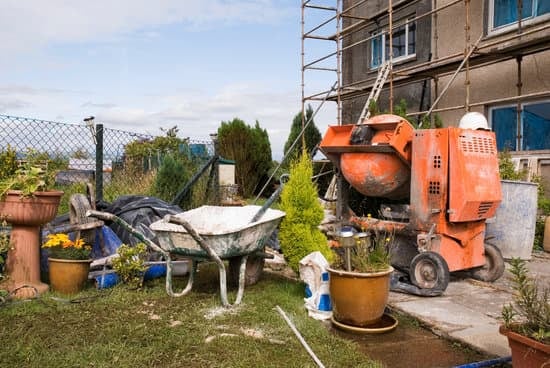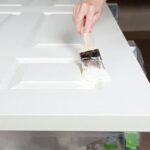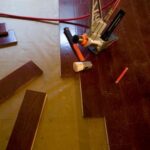Whether you are a seasoned contractor or just starting out in the home improvement industry, obtaining a Maryland Home Improvement License is crucial. This license serves as proof that you have met the necessary requirements and qualifications to operate legally in the state. Aspiring contractors must be well-versed in the application process, eligibility criteria, and documentation needed to successfully obtain this license.
In this comprehensive guide, we will take you through each step of applying for a Maryland Home Improvement License. From understanding the importance of licensing to navigating the renewal process, we aim to provide aspiring contractors with all the information they need to succeed.
Before diving into the specific requirements and procedures, it is essential to recognize why obtaining a Maryland Home Improvement License is so important. Not only does it signify your commitment to professionalism and adherence to industry standards but also assures homeowners that they are hiring a qualified contractor. Having a license can help establish trust with clients and set you apart from unlicensed competitors.
Throughout this article, we will break down each aspect of the application process, including eligibility criteria, required documentation, and examination tips. We will also address common concerns and queries about Maryland Home Improvement Licenses and conclude with expert advice for a successful application. So let’s get started on your journey towards becoming a licensed home improvement professional in Maryland.
Overview of Maryland Home Improvement License Requirements
The process of obtaining a Maryland Home Improvement License may seem daunting, but with a solid understanding of the requirements and prerequisites, it becomes much more manageable. In this section, we will explore the eligibility criteria and prerequisites that must be met in order to apply for a Maryland Home Improvement License.
To be eligible for a Maryland Home Improvement License, applicants must meet several requirements. First and foremost, individuals or businesses applying for the license must have a physical location within the state of Maryland. Additionally, they must possess the necessary skills and experience in home improvement work, which can be demonstrated through documentation such as resumes, certifications, or references from previous clients.
In order to ensure that licensed contractors meet certain ethical standards, the state of Maryland requires all applicants to provide proof of financial responsibility. This can be shown by submitting either a surety bond or an irrevocable letter of credit. The amount required is based on the type of license being sought and ranges from $10,000 to $20,000. Applicants must also demonstrate compliance with workers’ compensation laws by providing proof of insurance coverage.
| Eligibility Criteria | Prerequisites |
|---|---|
| Physical presence in Maryland | Surety bond or irrevocable letter of credit |
| Skills and experience in home improvement work | Proof of compliance with workers’ compensation laws |
It is important to note that different types of home improvement licenses may have additional requirements. For example, individuals seeking a residential contractor license are obligated to complete at least two years as a supervisor with qualifying experience before they can apply. On the other hand, those who wish to obtain a home improvement salesperson license must complete an approved training course within the last two years.
By familiarizing yourself with these eligibility criteria and prerequisites, you can ensure that you are well-prepared to apply for a Maryland Home Improvement License. Understanding these requirements will not only streamline the application process but also increase your chances of successfully obtaining the license.
Gathering Required Documents
Obtaining a Maryland Home Improvement License requires gathering and submitting certain documents to prove eligibility and meet the necessary requirements. This section will provide a step-by-step guide to help you navigate through the process of collecting all the necessary paperwork.
The first step in gathering the required documents is to read and understand the eligibility criteria outlined by the Maryland Home Improvement Commission (MHIC). These criteria often include demonstrating financial responsibility, obtaining adequate insurance coverage, and providing proof of experience in specific trade skills. Make sure to carefully review these requirements to ensure you meet all qualifications before starting the application process.
Once you have familiarized yourself with the eligibility criteria, it’s time to start collecting the necessary paperwork. Begin by preparing your business entity documentation, which may include articles of incorporation, partnership agreements, or certificates of organization. If you are operating as a sole proprietor, you may need to provide a trade name certificate.
Next, gather your financial documentation, such as bank statements and profit and loss statements for your business. The MHIC requires applicants to demonstrate financial stability and responsibility. Keep in mind that there may be specific financial requirements based on your gross sales volume.
In addition to business-related paperwork, you’ll also need to provide documentation highlighting your experience in home improvement work. This could include copies of contracts or permits from previous projects, letters of recommendation from clients or industry professionals, or photographs showcasing completed work. It’s important to present evidence that reflects your expertise and competence in the field.
| Document | Description |
|---|---|
| Business Entity Documentation | Articles of incorporation, partnership agreements, or certificates of organization |
| Financial Documentation | Bank statements, profit and loss statements, financial stability proof |
| Experience Documentation | Contracts or permits from previous projects, recommendation letters, photographs of completed work |
Remember to check the specific requirements outlined by the MHIC as there may be additional documents needed based on your unique circumstances. Ensuring that you have all the necessary paperwork will help streamline the application process and increase your chances of obtaining a Maryland Home Improvement License.
The Application Process
The application process for obtaining a Maryland Home Improvement License can seem complex, but with the right guidance, it can be navigated successfully. This section will provide a detailed walkthrough of each step involved in applying for a Maryland Home Improvement License.
To start the application process, you must first complete the application form provided by the Maryland Home Improvement Commission (MHIC). This form requires basic personal information such as your name, address, and contact details. You will also need to provide details about your business if you are applying as a contractor.
Next, you will need to gather and submit several supporting documents along with your application form. These documents include proof of identity such as a driver’s license or passport, documentation of any criminal convictions or charges, proof of business registration if applicable, and proof of workers’ compensation insurance coverage. It is important to ensure that all documents are current and up-to-date before submitting them.
Once you have completed the application form and gathered all the required documents, you can submit your application to the MHIC. There is an application fee that must be paid at this time as well. The MHIC will review your application and may request additional documentation or clarification if necessary.
After reviewing your application, the MHIC will schedule an interview with you to further discuss your qualifications and assess your understanding of home improvement laws and regulations in Maryland. This interview is an important part of the evaluation process and allows the commission to determine if you meet all the requirements for obtaining a Maryland Home Improvement License.
Submission and Review
Evaluation Process
Once you have submitted your Maryland Home Improvement License application, it will go through an evaluation process. The evaluation is conducted by the Maryland Department of Labor’s Division of Occupational and Professional Licensing (DLPP). During this process, your application will be reviewed to ensure that all the required documentation has been provided and that you meet the eligibility criteria.
The DLPP will carefully examine each component of your application, including your completed application form, supporting documents, proof of insurance, and any other relevant information. They will also verify if you have provided accurate and complete information.
It is important to note that the evaluation process can take some time. The DLPP receives a high volume of applications and prioritizes them based on the date they are received. Therefore, it is crucial to submit your application well in advance to allow for any potential delays that may occur during processing.
Additional Information or Documentation Requests
During the evaluation process, it is possible that the DLPP may request additional information or documentation from you. This could be due to missing or incomplete information in your initial application. It is important to respond promptly and provide all requested materials within the specified timeframe.
If you fail to provide the requested information within the given deadline, it may result in a delay or even rejection of your application. Therefore, it is essential to stay organized throughout this stage of the process and keep copies of all documentations submitted.
Notification of Approval or Rejection
After completing their review, the DLPP will notify you via email or mail regarding whether your Maryland Home Improvement License application has been approved or rejected. If approved, you will receive instructions on how to proceed with fulfilling any remaining requirements such as paying fees and obtaining liability insurance.
In case your application gets rejected, the notification will outline the reasons for rejection. You may appeal this decision within a specific timeframe if you believe there has been an error or if you have additional information that could support your application.
It is important to keep in mind that the DLPP’s decision regarding your application is final. Therefore, it is crucial to carefully follow all instructions and requirements provided by the DLPP throughout the evaluation and review process to increase your chances of a successful outcome.
Preparing for the Exam
Understanding the Exam Format and Content
Before starting your preparation for the Maryland Home Improvement License exam, it is essential to understand its format and content. The exam consists of multiple-choice questions that assess your knowledge in various areas related to home improvement. These areas include construction laws and regulations, safety practices, contract management, business practices, and ethical considerations.
To better prepare yourself for the exam, it is highly recommended to review the Home Improvement Contractor Law (Maryland Code, Business Regulation Article, Title 8). Familiarize yourself with the different sections and provisions that are covered in the law as they will form the basis for many questions on the exam.
Creating a Study Plan
With a comprehensive understanding of the exam content and format, it is time to create a study plan. Start by setting specific goals and deadlines for each topic or section you need to cover. This will help you stay organized and ensure that you allocate enough time for proper preparation.
Break down your study plan into smaller tasks such as reading relevant material, taking practice tests, or attending study groups. Consider allocating more time to topics that you find challenging or less familiar with. It is important to strike a balance between studying individual topics and practicing answering questions to simulate the actual exam experience.
Utilizing Resources and Practice Tests
To supplement your study materials, utilize various resources available online or through professional organizations. There are numerous books, websites, online tutorials, and even mobile applications that offer study guides specifically tailored for the Maryland Home Improvement License exam.
Furthermore, practice tests can be invaluable in helping you become familiar with the types of questions asked on the exam and improving your test-taking skills. Take advantage of practice exams provided by reputable sources as they can give you an idea of what areas need more focus.
Remember to review both correct and incorrect answers on practice tests comprehensively. Understanding why an answer is wrong is just as important as understanding why an answer is correct.
By following these tips and strategies, you can maximize your chances of acing the Maryland Home Improvement License exam and obtaining your license with confidence. Remember to stay focused, dedicated, and consistent in your study efforts to achieve a successful outcome.
Post-License Approval
Once you have successfully obtained your Maryland Home Improvement License, it is important to stay informed about the requirements for renewal, continuing education, and other obligations. This section will provide a comprehensive guide on how to navigate these post-license approvals.
Renewal of your Maryland Home Improvement License is required every two years. The renewal process involves submitting an application along with the appropriate fees. It is crucial to keep track of your license expiration date to ensure that you submit your renewal application on time.
Failure to renew your license by the expiration date can result in penalties or even the suspension of your license. Therefore, it is recommended that you set reminders well in advance to avoid any potential issues.
Continuing education is another critical aspect of maintaining your Maryland Home Improvement License. All licensed home improvement professionals must complete a specific number of continuing education units (CEUs) during their licensing period. The Maryland Home Improvement Commission (MHIC) requires completion of eight CEUs every two years.
These courses provide valuable updates on industry regulations, best practices, and new techniques in the field. It is essential to select accredited programs or courses approved by MHIC to ensure they meet the necessary requirements for continuing education.
In addition to renewal and continuing education requirements, there are other obligations that licensed home improvement professionals need to fulfill. One such obligation is maintaining proper insurance coverage. You must maintain general liability insurance with a minimum coverage amount outlined by MHIC regulations. Additionally, you may also be required to carry workers’ compensation insurance if you have employees.
Understanding and fulfilling these post-license approval requirements will ensure that you maintain a valid and active Maryland Home Improvement License. By staying compliant with all obligations such as timely renewals, completing required CEUs, and maintaining adequate insurance coverage, you can continue operating legally as a home improvement professional in the state of Maryland.
Frequently Asked Questions
As you embark on your journey to apply for a Maryland Home Improvement License, it is natural to have questions and concerns. This section aims to provide answers to some of the most frequently asked questions about the license, ensuring that you have a clear understanding of the process.
- What is a Maryland Home Improvement License?
- Who needs a Maryland Home Improvement License?
- What are the eligibility criteria for obtaining a Maryland Home Improvement License?
A Maryland Home Improvement License is an official document issued by the Maryland Department of Labor’s Division of Occupational and Professional Licensing (DLLR) that allows individuals or businesses to legally perform home improvement work in the state. This license ensures that contractors have met certain requirements and possess the necessary skills and knowledge to carry out such projects.
Any individual or business that engages in home improvement work in Maryland must hold a valid Home Improvement License, with few exceptions. “Home improvement work” refers to any remodeling, repair, alteration, conversion, or modernization of residential property. It is important to note that this license is not required for general contracting work on new construction projects.
To be eligible for a Maryland Home Improvement License, applicants must meet several requirements set by DLLR. These include being at least 18 years old, having a high school diploma or equivalent, completing approved pre-licensing education courses, possessing at least two years of trade experience or one year with a degree in engineering from an accredited college/university, and passing the required examination.
By addressing these common concerns and queries about the Maryland Home Improvement License, this section aims to provide valuable information and assist applicants in their journey towards obtaining the license. It’s essential to thoroughly understand all aspects of the licensing process to ensure compliance with state regulations and operate as a reputable professional in the field of home improvement in Maryland.
Tips and Best Practices
Applying for a Maryland home improvement license can be a complex process, but with the right tips and best practices, you can increase your chances of success. Here are some expert advice to help you navigate through the application process smoothly:
- Research and Understand the Requirements: Before starting the application process, it is crucial to thoroughly research and understand the eligibility criteria and prerequisites set by the Maryland Home Improvement Commission (MHIC). Make sure you meet all the necessary qualifications, such as having a valid social security number, proof of liability insurance, and relevant work experience.
- Organize Your Paperwork: Gathering all the required documents is a critical step in applying for a Maryland home improvement license. To ensure a smooth application process, create a checklist of all the necessary paperwork beforehand. This may include copies of your identification, proof of education or training, financial statements, references from previous clients or employers, and any other documents specified by the MHIC.
- Complete the Application Form Accurately: When filling out the application form, pay close attention to detail and provide accurate information. Any errors or inconsistencies in your application can cause delays or even rejection. It is recommended to double-check all sections of the form before submission to ensure its completeness.
- Seek Professional Help if Needed: If you find yourself overwhelmed by the application process or unsure about certain aspects, don’t hesitate to seek professional assistance. There are consultants or attorneys who specialize in helping individuals with their Maryland home improvement license applications. They can guide you through each step and ensure that your application meets all requirements.
- Be Prepared for an Interview: Depending on your application and background, you may be called for an interview with an MHIC representative. This interview is an opportunity for them to clarify any doubts they have regarding your qualifications or experience. Prepare for this interview by reviewing your application materials and practicing potential interview questions.
By following these tips and best practices, you can increase your chances of a successful Maryland home improvement license application. Remember to thoroughly research the requirements, gather all the necessary documentation, complete the application accurately, seek professional help if needed, and be prepared for an interview. Good luck on your licensing journey.
Conclusion
In conclusion, obtaining a Maryland Home Improvement License is crucial for home improvement professionals in the state. It serves as proof of their competency and knowledge, providing reassurance to clients that they are hiring someone with the skills and qualifications necessary to complete the job. Through this licensing process, Maryland aims to protect consumers and ensure that only qualified individuals are working on home improvement projects.
Throughout this article, we have discussed the various requirements and steps involved in applying for a Maryland Home Improvement License. From understanding the eligibility criteria to gathering the necessary documents and navigating through the application process, we have provided a comprehensive guide to help professionals successfully obtain their license.
After applying, it’s important to understand what happens next. The submission undergoes a review process where it is evaluated based on various factors such as experience, qualifications, and adherence to safety regulations. Applicants should be prepared for a potential examination as well, which will test their knowledge of relevant laws and practices. Meeting these requirements is essential for securing your license and being able to legally operate as a home improvement professional in Maryland.
Once you have obtained your license, the obligations do not end there. Professionals must stay updated on renewals, continuing education courses, and other obligations set by Maryland’s licensing board. By fulfilling these requirements and remaining committed to ongoing learning and development, professionals can continue to provide exceptional services while abiding by the state’s regulations.
By adhering to proper licensing procedures, home improvement professionals in Maryland can enhance their credibility in the industry. Not only does it benefit them personally by opening up opportunities for growth and success but also provides peace of mind for clients looking for reliable and qualified individuals to handle their projects. So take the necessary steps outlined in this article towards obtaining your Maryland Home Improvement License, and empower yourself as a respected professional in the field of home improvement.
Frequently Asked Questions
How do I get a contractors license in MD?
To obtain a contractors license in Maryland, individuals must follow several steps. Firstly, it is necessary to have at least two years of experience in the construction industry or a related field. Next, applicants must pass an examination that covers various aspects of contracting, including laws and regulations specific to Maryland.
Additionally, submitting an application with the appropriate fees and supporting documents is required for consideration. These documents may include proof of insurance coverage and a financial statement. Once the application is reviewed and approved, individuals will be issued their contractors license.
How much is an MHIC license in Maryland?
The cost of obtaining a Maryland Home Improvement Commission (MHIC) license varies depending on the type of license sought. As of 2021, the base fee for a contractor’s license is $250, which covers one full year from the date of issuance.
However, there may be additional fees for accompanying categories or services provided by the licensee. For example, if someone wishes to operate as both a home improvement contractor and salesperson under one license, they would need to pay separate fees for each category.
Is it illegal to be an unlicensed home improvement contractor in Maryland?
Yes, it is illegal to work as an unlicensed home improvement contractor in Maryland. The state has established regulations through the Maryland Home Improvement Law to protect consumers from fraudulent or substandard work by ensuring that contractors meet certain standards and qualifications before conducting business.
Operating without a proper license can result in penalties such as fines or even criminal charges. Therefore, it is crucial for those engaging in home improvement work to acquire the necessary licensing to comply with Maryland law and offer reassurance to potential clients regarding their qualifications and professionalism.

I’m thrilled to have you here as a part of the Remodeling Top community. This is where my journey as an architect and remodeling enthusiast intersects with your passion for transforming houses into dream homes.





